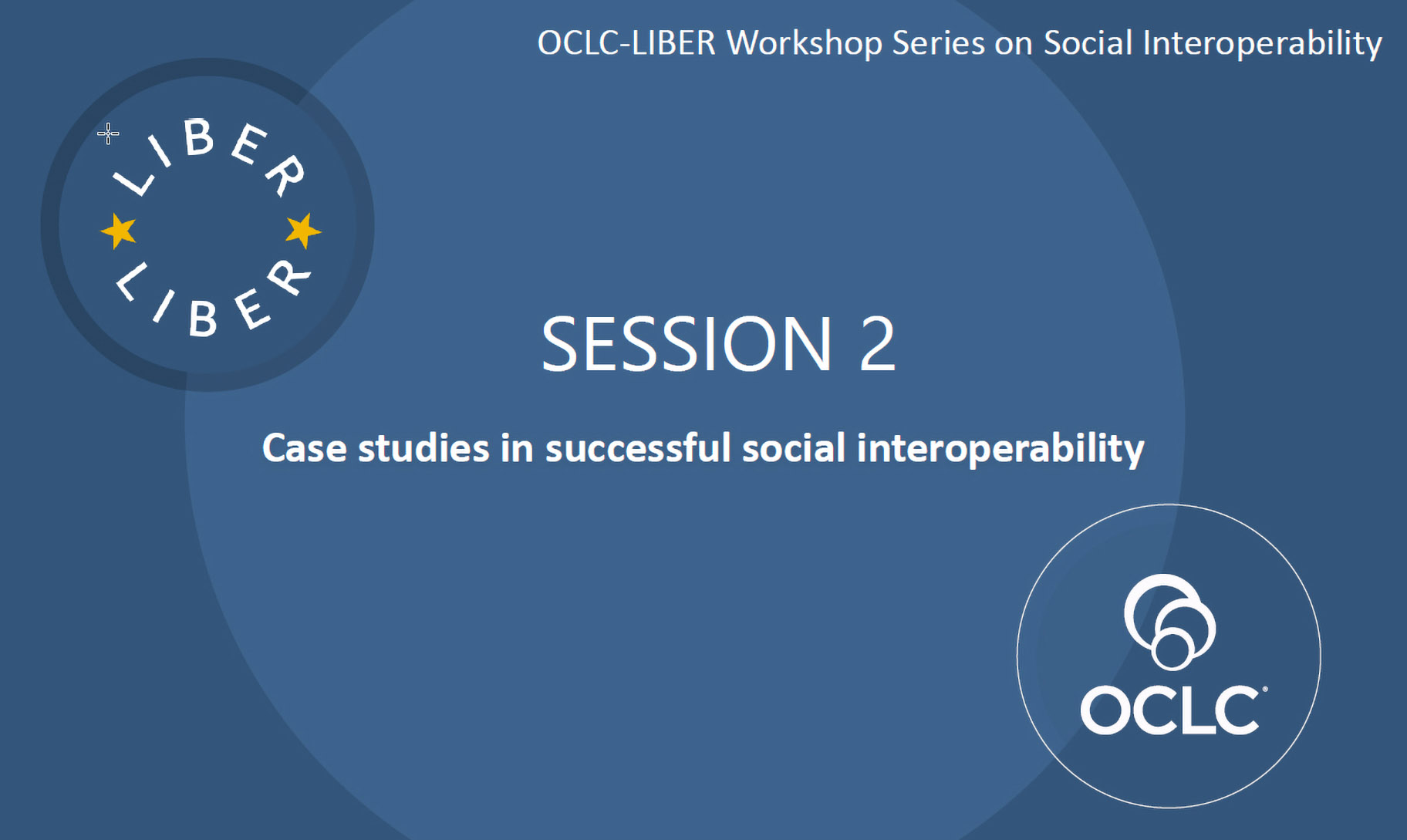
Social Interoperability Workshop 2: Case Studies in Successful Social Interoperability
Successful advancement of open scholarship initiatives at research universities worldwide is dependent upon collaboration and partnership among many stakeholders from across the institution. The recent OCLC Research Report, Social Interoperability in Research Support: Cross-Campus Partnerships and the University Research Enterprise, emphasizes that the best chance for developing these relationships is to cultivate a deep understanding of potential stakeholders: their responsibilities, pain points, and areas of common interest where engagement can take root and flourish.
However, in the recent OCLC-LIBER Open Science Discussion Series, many librarians reported feeling inadequately equipped to connect with the array of non-library stakeholders essential for open science success, despite the widespread acknowledgement that “open science must be a collective effort.” One participant even stated, “It’s making the connection that is most important…because we don’t know what they need.” A key takeaway from that discussion series was that library practitioners must develop a specific type of soft skill: the ability to create and maintain working relationships between individuals and organizational units that promote collaboration, communication, and mutual understanding. We call this skill “social interoperability.”
In May 2021, OCLC and LIBER are again collaborating to offer a three-session workshop series exclusively for LIBER members and OCLC Research Library Partnership Affiliates, using both the Social Interoperability in Research Support report and the key takeaways from the OCLC-LIBER Open Science Discussion Series, as a core component of the workshop curriculum. This workshop series is a pilot effort and participation numbers are strictly limited. Our organizations will be working together to assess the pilot and explore if this training exercise can be scaled to support more librarians.
WORKSHOP 2
The second workshop examines strategies and tactics that can support successful social interoperability. Participants discuss several case studies that exemplify successful cross-institutional collaboration in support of open scholarship in order to develop a shared understanding of both the ‘what’ and ‘how’ of relationship development/management.
Resources:
- Social Interoperability in Research Support, pages 16-35
- Case studies from different national environments:
- “The Big Ask”: Securing Recurring Campus Funding for a Research Data Service at the University of Illinois
- Emerging Roles for Libraries in Bibliometric and Research Impact Analysis: Lessons Learned from the University of Waterloo
- Zeeland, Hilde Van, and Jacquelijn Ringersma. 2017. “The Development of a Research Data Policy at Wageningen University & Research: Best Practices as a Framework.” LIBER Quarterly 27 (1): 153–70. https://doi.org/10.18352/lq.10215.
Presented:
11 May 2021
Presented at:
OCLC-LIBER Workshop Series
Location:
virtual
Presentation Topics:
- Research Data Management
- Research Support
- Research Information Management